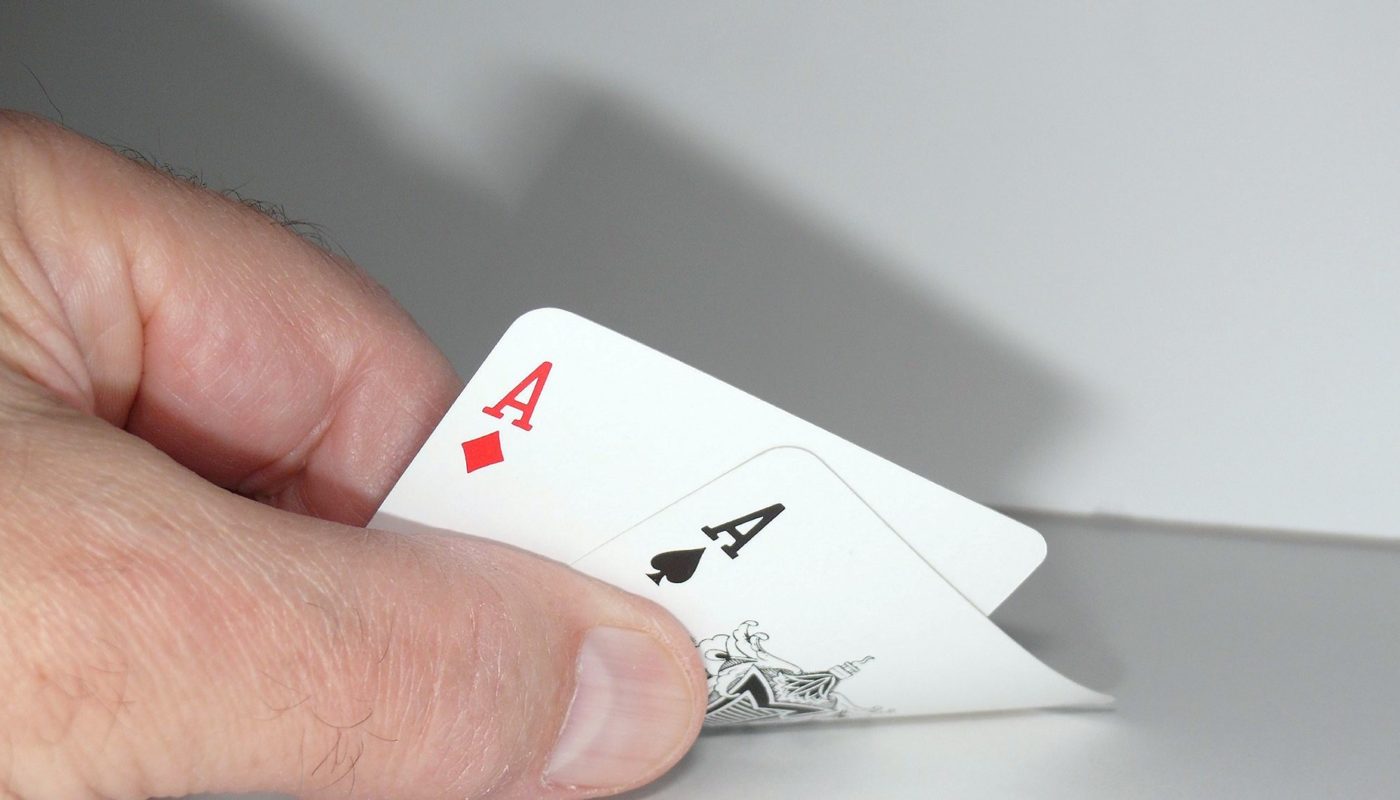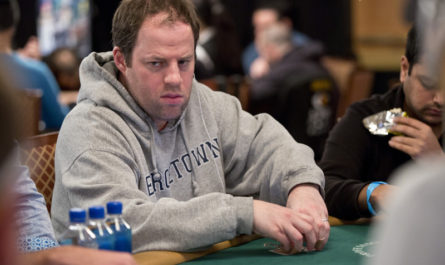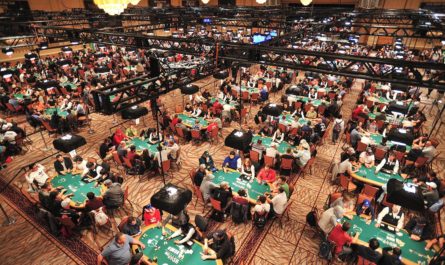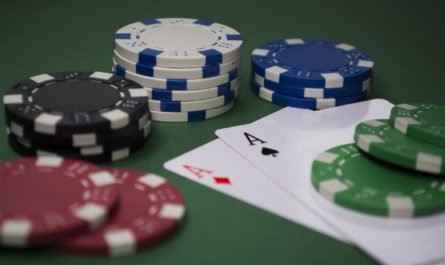Poker is a great game for many reasons: there are no physical limitations/requirements to being successful, one can play at essentially any age, it’s an interesting game that’s always changing and can continuously challenge us, and many, many more. But my favorite thing about poker—what really motivated me when I first learned to play—is that anyone can compete in World Championship events.
You may love football, but you can’t sign up for the Super Bowl and take your chances against Tom Brady or Julio Jones or Aaron Donald to hoist the Lombardi Trophy. Your perfect day may be a sunny afternoon on the golf course, but you can’t tee it up against Tiger and Phil at The Masters to try to win the Green Jacket. And no matter how much of a thrill you would find it to be, you simply cannot pay an entry fee to play against Serena Williams at Wimbledon. But with poker, if you want to put up the entry fee (as low as $500), you can compete against the likes of Phill Hellmuth and Kristin Bicknell to try to win the ultimate prize—the World Series of Poker Bracelet.
I know that it’s possible…because I did it. I learned to play no-limit Texas hold’em with friends in college, playing once or twice a week for a couple of years. I played intermittently online before it became too difficult to do so in the US. And I played several tournaments a year throughout my 20s and 30s, without a massive time commitment, while maintaining a job and a growing family. And in 2018, I won a WSOP Bracelet.
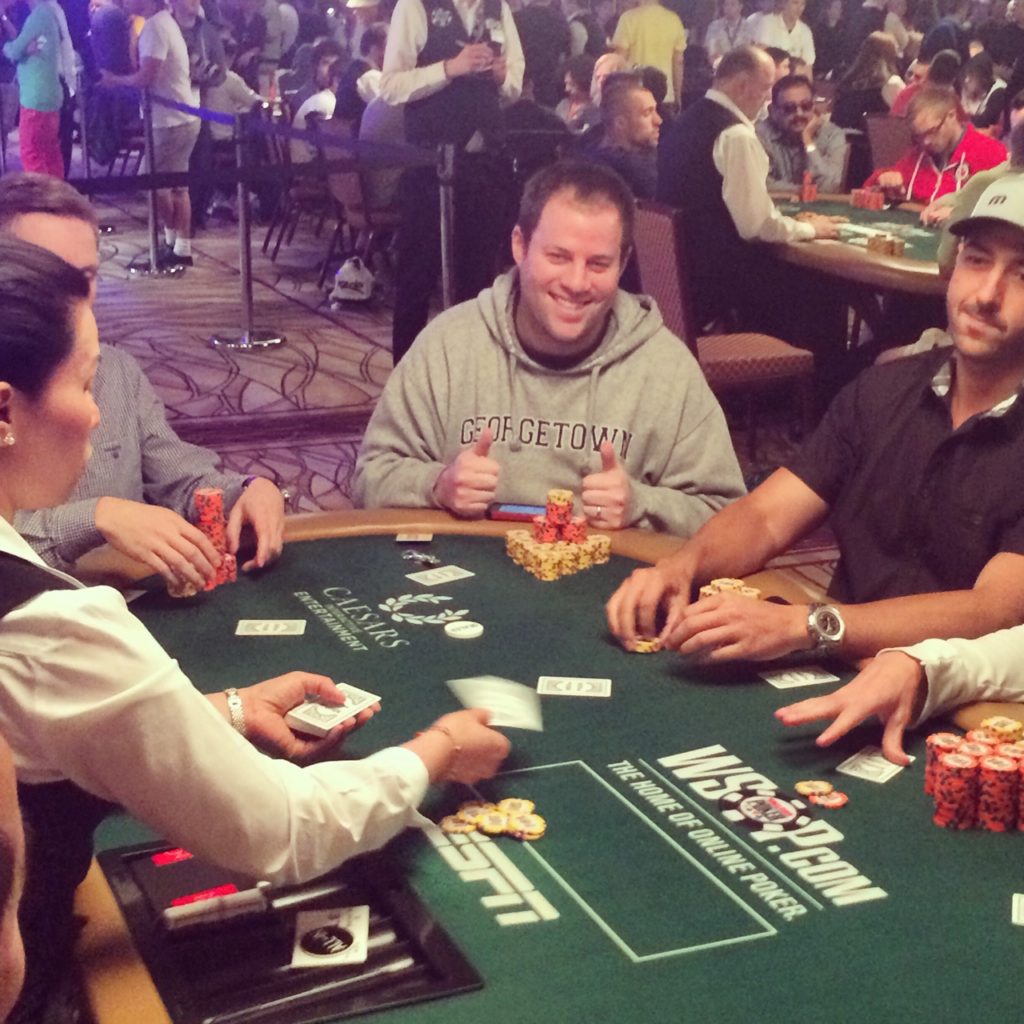
We shouldn’t delude ourselves into thinking that we amateurs are on a level playing field with the top professionals; we are not. They have the time and dedication to spend dozens of hours per week, every month of the year, to study the game, practice different betting lines in various scenarios, over a span of quite literally millions of hands. But while poker is mostly a game of skill, there is of course an element of chance, and ultimately, even the best players in the world need to get lucky to win a big tournament. If you as an amateur have the desire and even a modest commitment, you can put yourself in a position where you also CAN win poker’s biggest tournaments—you’d simply need to get a bit more lucky than those world-class professionals.
How can you put yourself in that position? How can you make it so that IF you run well, IF you pick up the right hands in the right situations and maybe get a suck-out or two, that you can run deep in a major tournament? Here are three relatively straightforward things you can do to get there:
1: Learn the basic math/odds of the game.

For non-professional players, I believe that math is over-rated and is one of the most unnecessarily-intimidating deterrents to people who would like to play in major tournaments. One most certainly does NOT need to be a PhD in quantitative engineering in order to win a poker tournament. Sure, if you’re playing cash games for a living, and your ability to pay your rent/mortgage will be determined over the course of hundreds of thousands of hands in a year, you want to know whether you have a 47% chance to win a given hand or a 49% chance to do so; in a single tournament, that hand is a coin toss, and you should treat it as such.
But there are some rudimentary odds that you should be aware of; I think this is a great tool/cheat sheet—as much information as you need without being overwhelming.
2: Have a general strategy.
Are you a tight player who is going to play few hands and generally wait till the cards come your way before putting in a lot of chips, only occasionally bluffing (everyone has to bluff at least sometimes)? Are you an aggressive player who likes to “mix it up,” play a lot of hands, try to keep your opponents off-balance, and take greater risks but with the potential to run up a big stack early in a tournament a bit more frequently? Do you want to play tight early in a tournament when the blinds are low and people are generally splashing around in pots more often, but then you’ll get more aggressive as the field shrinks and many players tighten up with the money bubble in sight?
Whatever your strategy is, have one. Try to hone it and tweak it as you see when it succeeds and when it fails. As you get more advanced, you may have differing strategies depending on the stage of the tournament, your chip stack, the playing styles of the other players at the table, etc; but you should always have a plan when you’re at the table, even if that plan is constantly being re-evaluated as more information becomes clear and the dynamics of the tournament evolve.
3: Take notes while you play.
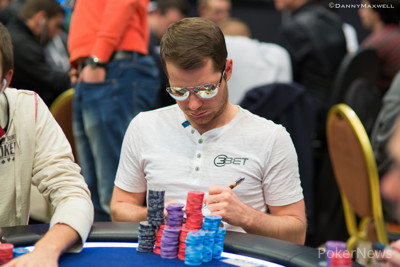
This is admittedly tedious, but it is tremendously helpful for two reasons—you can review/think through your hands after the fact, and you can share/discuss your hands with friends. Both of those can help you think through how you could have played the hand differently—sometimes clearly for the better or sometimes simply differently, where it may be better in some scenarios but not in others.
Learn how to take short-hand notes on your phone and remember to do so immediately after key/interesting hands, so you don’t forget the details. Here is an example of what you could type that’s relatively quick/easy but gives you all the information you need to review the hand after the fact:
Me KQdd in HJ, raise to 2.5 BBs, button and BB call. Flop KT8d, checks to me, lead 4 BBs, button call. Turn 4d, lead 10 BBs, button moves all-in for 40 BBs, I call, he has KT. River 4h.
What happened in this hand? I had king-queen of diamonds in the hijack position (two seats to the right of the button) and raised to 2.5 big blinds; the button and big blind players called, while everyone else folded. The flop was king/ten/8 with one diamond (relevant because a turn and river diamond would give us a flush); the big blind checked, I bet 4 big blinds, the player on the button called, and the big blind folded. The turn was the 4 of diamonds, so I bet 10 big blinds with my top-pair/strong-kicker and now a flush draw as well. The button went all-in, I called, and I was trailing his two-pair (kings and tens); I’d need a queen (for a better two-pair) or a diamond (for a flush) to win the hand; the river was the 4 of hearts, so I lost. Does that mean I should have folded? Maybe, but not necessarily. That’s a discussion for a different day. But because I took those notes, I can think through other ways to have played the hand and discuss it with friends, which allows me to improve my game while I’m not even playing.
A Little Luck Goes a Long Way
Poker is a very challenging game, requiring a combination of both skill and luck to win a big tournament. But if you know the basic math/odds, you have a plan/strategy to execute, and you are working to improve your game even when you don’t have a ton of time to play more, you can put yourself in a position to win…if you catch a few breaks. My Dad used to love the expression, “luck is where opportunity meets preparation.” Be prepared, and give yourself the opportunity by jumping into an exciting tournament; you never know…you may have positioned yourself to get a little lucky and take down the whole thing.

